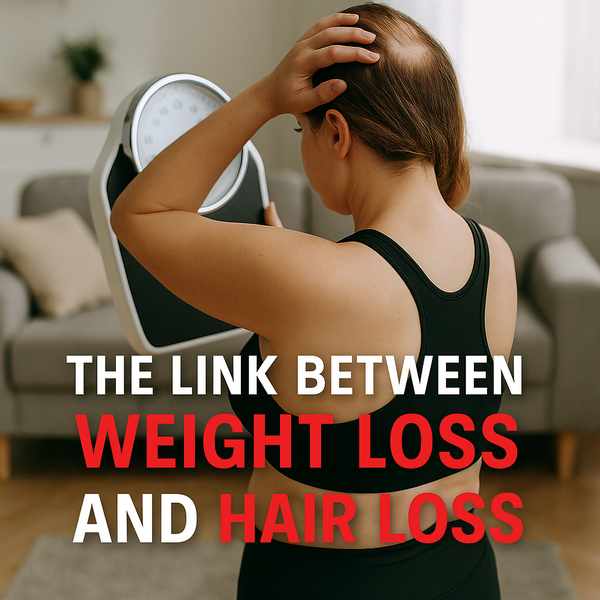
Losing weight is often a positive step toward better health, but it can sometimes come with unwelcome side effects — like hair loss.
Understanding why this happens and how to protect your hair can help you reach your goals without compromising your confidence.
What Causes Hair Loss After Losing Weight?
Hair loss during weight loss is usually a result of physical stress or nutritional deficiencies.
Common causes include:
- Lack of protein, iron, or vitamins
- Body enters stress mode
- Hormonal imbalances
- Rapid weight loss
What Type of Hair Loss Is It?
Most hair loss related to weight loss is called telogen effluvium.
Key facts:
- There’s a delay between cause and effect
- No bald patches, just thinning
- Hair usually grows back with time
Nutrients Critical for Hair Health
If you're trying to lose weight, be sure not to miss these nutrients:
- Essential for hair structure and growth
- Iron
- Biotin and other B vitamins
- Supports hair tissue repair and growth
- Vitamin D
Skipping meals or using crash diets can easily lead to deficiencies that trigger hair loss.
Staying Healthy Without Sacrificing Hair
You don’t have to choose between losing weight and keeping your hair.
Tips include:
- Aim for 1–2 pounds per week
- Eat a nutrient-rich diet
- Especially during calorie restriction
- Manage stress and sleep
- Hair needs water, too
What to Do If You’re Already Losing Hair
If you notice excessive shedding:
- It’s likely temporary
- Get bloodwork done
- Focus on protein and iron intake
- Avoid tight hairstyles and harsh products
- Hair regrowth takes a few months
When to See a Professional
A doctor or dermatologist can help identify underlying issues like:
- A common cause of both weight and hair changes
- Autoimmune conditions
- Severe nutritional deficiencies
Conclusion
Weight loss and hair loss can be connected, but they don’t have to be permanent partners.
Prioritize nourishment, patience, and consistency, and your body weight loss and hair loss will thank you — from head to toe.